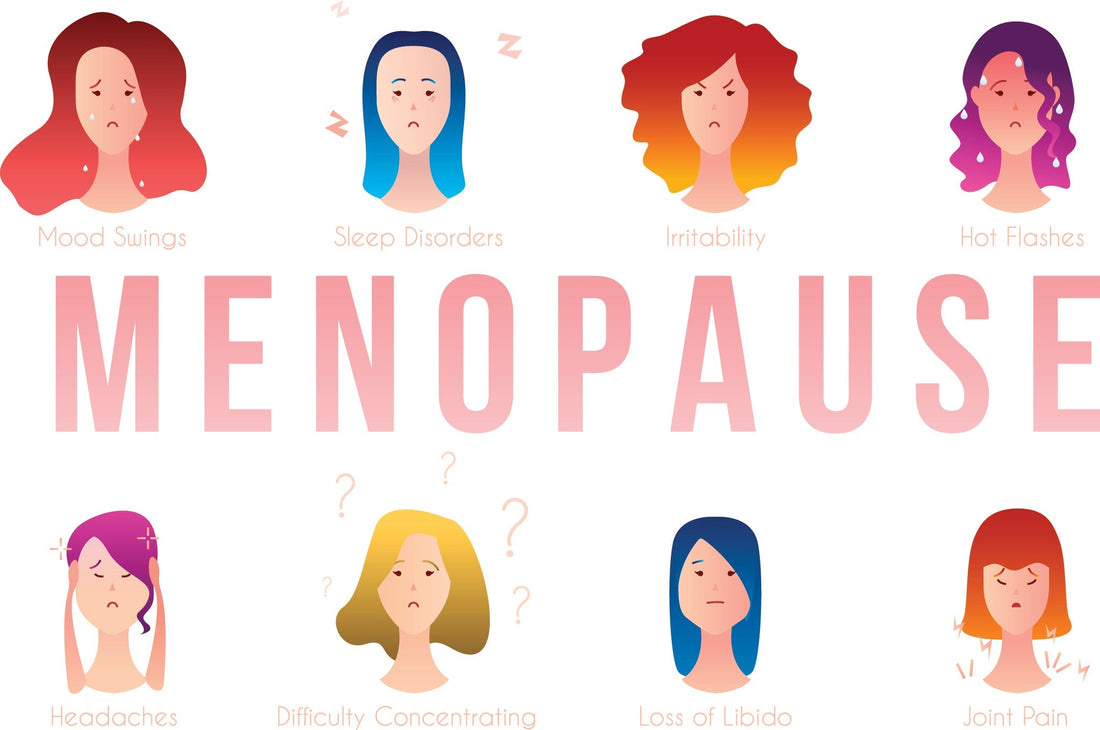
Why Passionflower Helps Regulate Hormones and Relieve Menopausal Symptoms, Bringing Good Sleep to Middle-Aged Women
Share
Why Passionflower Helps Regulate Hormones and Relieve Menopausal Symptoms, Bringing Good Sleep to Middle-Aged Women
Introduction
Menopause is a natural transition in a woman’s life, typically occurring between the ages of 45 and 55. It brings various hormonal changes that often lead to hot flashes, night sweats, mood swings, anxiety, and insomnia. While some women turn to hormone replacement therapy (HRT), others prefer natural remedies like passionflower.
Passionflower (Passiflora incarnata) is a well-known herb with powerful calming effects. It helps regulate hormones, ease menopausal symptoms, and promote deep sleep—making it a great natural alternative for middle-aged women seeking relief. Let’s explore how passionflower works and why it’s so beneficial during this phase of life.

1. Understanding Passionflower and Its Active Compounds
1.1 What is Passionflower?
Passionflower is a climbing vine with beautiful purple flowers, native to the Americas. It has been used in traditional medicine for centuries to treat anxiety, insomnia, and hormonal imbalances. It is commonly consumed as:
- Tea: Made from dried passionflower leaves and flowers
- Tincture: A liquid extract taken with water
- Capsules/Tablets: Standardized herbal supplements
1.2 Key Active Compounds in Passionflower
Passionflower contains several bioactive compounds that contribute to its therapeutic effects:
- Flavonoids (apigenin, quercetin): Help reduce inflammation and balance hormones
- Alkaloids: Aid in stress reduction and nervous system regulation
- GABA (gamma-aminobutyric acid): A neurotransmitter that promotes relaxation and better sleep
These compounds work together to calm the nervous system, reduce cortisol (the stress hormone), and support hormonal balance during menopause.

2. How Passionflower Helps Regulate Hormones
2.1 Impact on Estrogen and Progesterone Levels
During menopause, estrogen and progesterone levels fluctuate, causing a range of uncomfortable symptoms. Passionflower supports hormonal health by:
- Encouraging natural estrogen production in a balanced way
- Reducing progesterone-related anxiety and mood swings
- Supporting the body’s ability to transition smoothly through menopause
2.2 Supporting the Endocrine System
The endocrine system regulates hormone production, and stress can throw it off balance. Passionflower reduces cortisol levels, which prevents further hormonal disruption. This is particularly important for menopausal women, as high cortisol can worsen hot flashes and sleep disturbances.
3. Passionflower for Menopausal Symptom Relief
3.1 Alleviating Hot Flashes and Night Sweats
One of the most common menopausal complaints is hot flashes, often accompanied by night sweats. Passionflower has natural cooling and soothing properties that help regulate body temperature, providing relief from these sudden heat surges.
3.2 Mood Stability and Emotional Well-being
Menopause often brings mood swings, irritability, and even mild depression. Passionflower influences neurotransmitters like serotonin and dopamine, promoting emotional stability and reducing anxiety. Women who struggle with hormone-induced emotional ups and downs may find passionflower particularly helpful.
4. Passionflower and Sleep Improvement
4.1 Role of Passionflower in Reducing Insomnia
Passionflower’s ability to increase GABA levels in the brain makes it an excellent sleep aid. GABA helps calm the nervous system, reducing nighttime restlessness and promoting deep sleep. Studies suggest passionflower can be as effective as prescription sleep medications—without the risk of dependency.
4.2 Improving Sleep Quality for Middle-Aged Women
Many menopausal women experience sleep disturbances due to hormonal changes. Passionflower:
- Helps regulate sleep cycles
- Reduces nighttime awakenings
- Improves overall sleep quality, leading to better daytime energy and mood
By promoting uninterrupted, restorative sleep, passionflower helps women wake up feeling refreshed and balanced.
5. How to Use Passionflower Safely and Effectively
5.1 Best Forms and Dosages for Menopausal Women
- Tea: 1-2 teaspoons of dried passionflower in hot water, taken before bedtime
- Tincture: 30-40 drops in water, 2-3 times daily
- Capsules: 250-500 mg per dose, depending on product recommendations
5.2 Possible Side Effects and Precautions
Passionflower is generally safe, but some precautions include:
- May cause drowsiness—avoid before driving
- Should not be combined with sedatives or antidepressants
- Consult a doctor before use if taking hormone therapy or other medications
Conclusion
Passionflower is a powerful herbal ally for middle-aged women navigating menopause. By regulating hormones, reducing hot flashes, stabilizing mood, and promoting restful sleep, it offers a natural alternative to conventional treatments. If you’re struggling with menopause-related symptoms, passionflower might be the gentle, effective remedy you need.
FAQs
-
Can passionflower replace hormone replacement therapy (HRT)?
While not a direct replacement, it can be a natural alternative for mild to moderate symptoms. -
How long does it take for passionflower to work for menopause?
Many women notice benefits within a few weeks of regular use. -
Is passionflower safe for long-term use?
Yes, but it's best to take breaks or cycle its use periodically. -
Can passionflower help with weight gain during menopause?
Indirectly, by reducing stress-related cortisol spikes that contribute to weight gain. -
What is the best way to take passionflower for sleep?
Drinking passionflower tea 30-60 minutes before bed is most effective.

